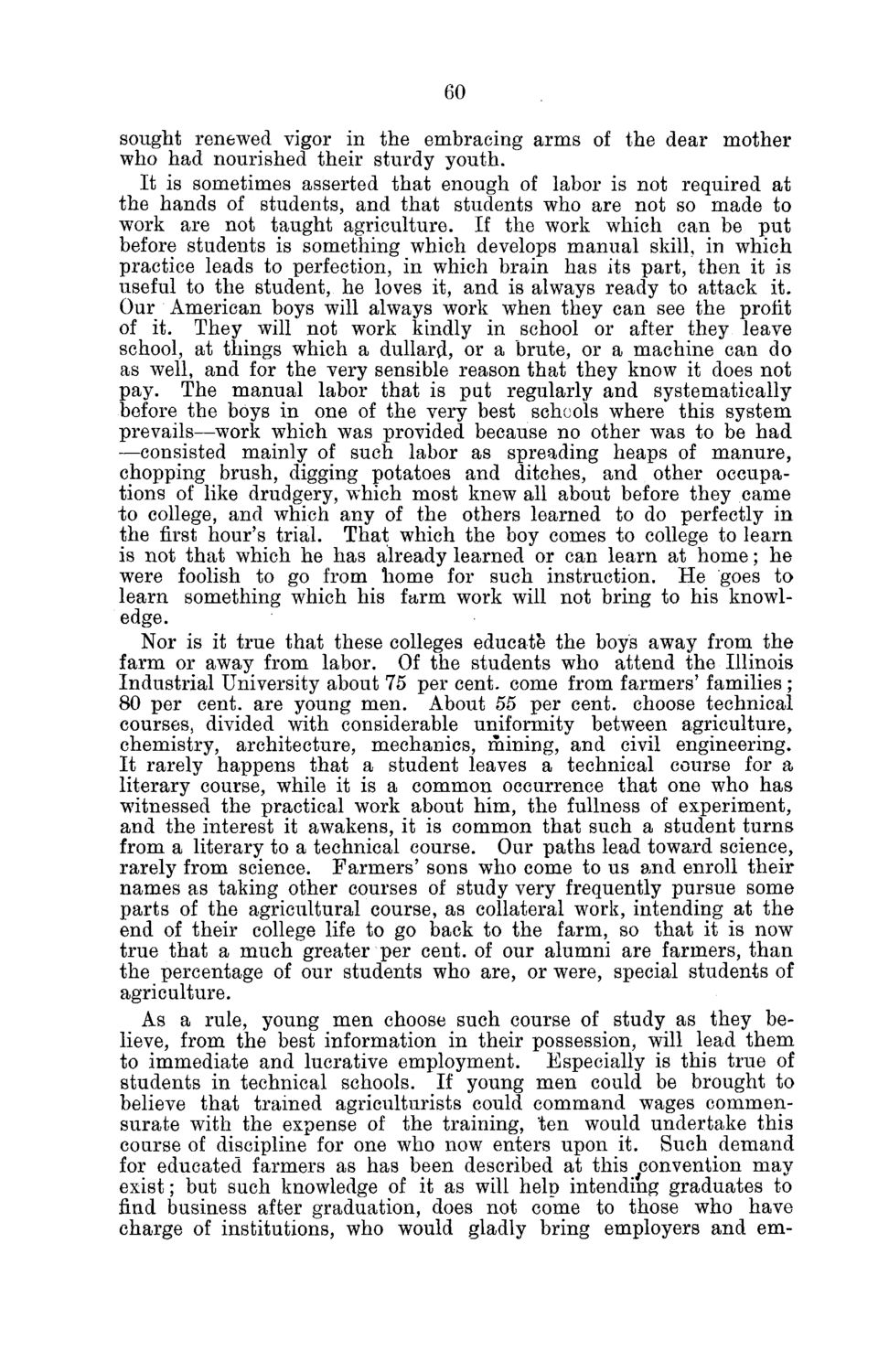| |
| |
Caption: Board of Trustees Minutes - 1882
This is a reduced-resolution page image for fast online browsing.

EXTRACTED TEXT FROM PAGE:
60 sought renewed vigor in the embracing arms of the dear mother who had nourished their sturdy youth. It is sometimes asserted that enough of labor is not required at the hands of students, and that students who are not so made to work are not taught agriculture. If the work which can be put before students is something which develops manual skill, in which practice leads to perfection, in which brain has its part, then it is useful to the student, he loves it, and is always ready to attack it. Our American boys will always work when they can see the profit of it. They will not work kindly in school or after they leave school, at things which a dullard, or a brute, or a machine can do as well, and for the very sensible reason that they know it does not pay. The manual labor that is put regularly and systematically before the boys in one of the very best schools where this system prevails—work which was provided because no other was to be had —consisted mainly of such labor as spreading heaps of manure, chopping brush, digging potatoes and ditches, and other occupations of like drudgery, which most knew all about before they came to college, and which any of the others learned to do perfectly in the first hour's trial. That which the boy comes to college to learn is not that which he has already learned or can learn at home; he were foolish to go from home for such instruction. He goes to learn something which his farm work will not bring to his knowledge. Nor is it true that these colleges educate the boys away from the farm or away from labor. Of the students who attend the Illinois Industrial University about 15 per cent, come from farmers' families ; 80 per cent, are young men. About 55 per cent, choose technical courses, divided with considerable uniformity between agriculture, chemistry, architecture, mechanics, mining, and civil engineering. It rarely happens that a student leaves a technical course for a literary course, while it is a common occurrence that one who has witnessed the practical work about him, the fullness of experiment, and the interest it awakens, it is common that such a student turns from a literary to a technical course. Our paths lead toward science, rarely from science. Farmers' sons who come to us and enroll their names as taking other courses of study very frequently pursue some parts of the agricultural course, as collateral work, intending at the end of their college life to go back to the farm, so that it is now true that a much greater per cent, of our alumni are farmers, than the percentage of our students who are, or were, special students of agriculture. As a rule, young men choose such course of study as they believe, from the best information in their possession, will lead them to immediate and lucrative employment. Especially is this true of students in technical schools. If young men could be brought to believe that trained agriculturists could command wages commensurate with the expense of the training, ten would undertake this course of discipline for one who now enters upon it. Such demand for educated farmers as has been described at this ^convention may exist; but such knowledge of it as will help intending graduates to find business after graduation, does not come to those who have charge of institutions, who would gladly bring employers and em-
| |